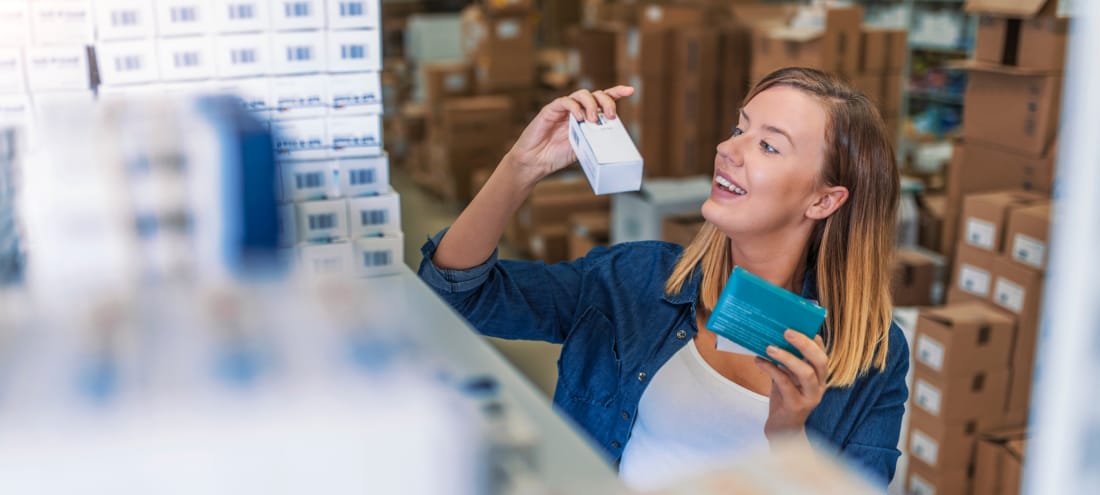In the constant development of pharmaceutical logistics, ensuring reliability and safety in shipping methods has become an essential prerogative.
The traceability of the pharmaceutical products’ journey, preservation measures, and quality control are just a few of the key elements of the correct distribution chain, which in the pharmaceutical sector is strictly regulated.
The role of logistics in the pharmaceutical sector
Pharmaceutical logistics plays a very important role in the management of drug transportation. This complex coordination system is responsible for ensuring utmost care in the movement of drugs along the entire distribution network.
The preservation and management of pharmaceutical goods involve a series of responsibilities that require not only advanced skills in logistics management but also the rigorous adherence to high standards of quality and safety. These standards are crucial to preserve the properties of the medicine from the beginning of its journey to its destination.
Challenges and solutions in pharmaceutical logistics
The pharmaceutical logistics sector faces complex challenges related to regulatory integration, traceability, and temperature management of goods during transport.
The need to integrate quality control systems into shipping methods highlights the importance of adhering to strict regulations that impose complex management of operations systems. Additionally, the traceability of pharmaceutical products throughout the supply chain is fundamental to monitor the goods in detail, respecting deadlines and avoiding economic waste.
Ensuring the preservation of drugs at controlled temperatures during transport is also a growing priority. The increasingly personalized nature of medicines and the spread of temperature-controlled biopharmaceutical products necessitate the adoption of specific technological systems and vehicles equipped with special equipment to cope with thermal variations.
Best practices for shipping in the pharmaceutical sector
In the pharmaceutical sector, the effectiveness of shipments is crucial to ensure safety and compliance with regulations. One aspect to consider is the use of specialized packaging designed to protect drugs during transport. The materials of these packages must comply with the regulations of good distribution practice of drugs to ensure product stability.
It is also important that shipments are equipped with advanced systems for recording and monitoring environmental conditions to ensure that drugs remain within the required temperature limits throughout the entire distribution chain.
Moreover, the implementation of robust security procedures, such as operator authentication and risk management, contributes to preventing counterfeiting and ensuring product quality.
Traceability in drug transportation
Drug traceability is another element that facilitates identification and recording to track the drug’s journey throughout its entire route.
Let’s look specifically at the most commonly used traceability systems in pharmaceutical logistics:
- Barcode and RFID (Radio-Frequency Identification): The use of barcodes and RFID tags allows for quick and accurate identification of products during all stages of the distribution chain. These systems facilitate traceability and enable precise inventory control.
- Order and Inventory Management Systems: Advanced software platforms that provide real-time visibility on order status, product availability data, facilitating stock management.
- Blockchain: This technology offers a decentralized and secure solution for recording transactions along the pharmaceutical supply chain. Blockchain provides immutable traceability, reducing the risk of fraud and counterfeiting.
- Serial Tracking Systems: Some pharmaceutical products require detailed serial tracking to monitor each individual item. These systems provide a very high level of detail in product traceability.
Regulations and compliance in the transportation of pharmaceutical products
Pharmaceutical companies must adhere to GxP (Good Practices) regulations. These are a set of rules that establish high standards for the production, management, transportation, and distribution of drugs.
GxP regulations include:
- Good Manufacturing Practices (GMP)
- Good Distribution Practices (GDP)
- Good Clinical Practices (GCP)
Temperature management is therefore particularly critical, and regulations often require the use of thermal packaging and temperature monitoring systems during transport.
Compliance with regulations is therefore crucial to avoid legal sanctions and ensure consumer trust: relying on specialized and certified logistics partners is an additional guarantee for safe pharmaceutical transport.
Need a quote or looking for a reliable partner for your pharmaceutical shipments? Contact us for more information about our transportation services.










